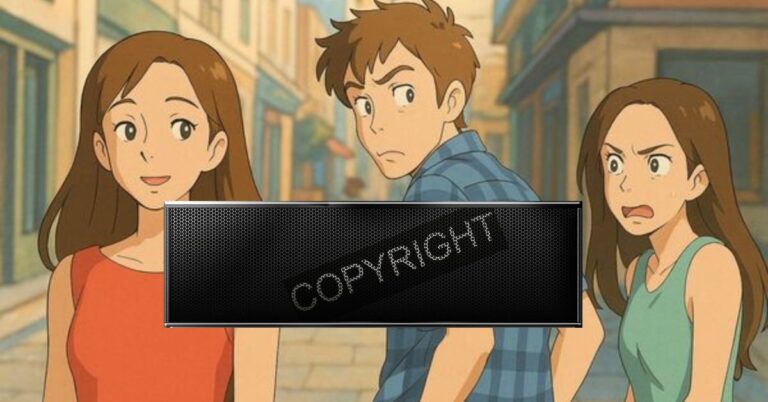I recently found myself caught up in whirlwind of fascination & controversy as I watched new trend take over internet & i know, you have an idea, what i am talking about: AI-generated images styled after Studio Ghiblis iconic aesthetic. As someone who is long admiring the hand-drawn brilliance of Hayao Miyazaki’s films, I was both amazed & unsettled by flood of these machine-made creations. Powered by OpenAIs latest GPT-4o model, people were transforming selfies, memes & even current events into whimsical Ghibli-esque scenes with eerie precision. But as trend exploded I couldn’t help but wonder what Miyazaki & his team at Studio Ghibli thought of it all. When their response finally came, it was every bit as fiery & heartfelt as I’d anticipated.
You should know this but For those who dont know, Studio Ghibli is the the legendary Japanese animation studio co-founded by a great man named Miyazaki responsible for timeless works like Spirited Away, My Neighbor Totoro & Princess Mononoke. Their films arent just visually stunning—they’re labors of love, crafted through meticulous hand-drawn techniques which embody human spirit. Miyazaki has never been shy about his disdain for shortcuts in animation so I had a hunch that this AI craze wouldn’t sit well with him.
I wasnt wrong. In a rare & pointed public statement, Miyazaki didnt hold back. “I am utterly disgusted,” he declared, his words carrying the same intensity I’d heard in his past critiques of artificial intelligence. Years ago, in a 2016 documentary, he’d watched an AI-generated animation demo—a grotesque, twitching creature—& called it “an insult to life itself.” That disgust clearly hasnt faded. Seeing his studios signature style replicated by a machine seemed to strike a nerve. “This is not art,” he said. “It’s a hollow imitation, lacking soul & intention that only a human hand can bring. Our work is about capturing essence of life—its beauty, its pain, its complexity. A machine can never understand that.”
His reaction hit me hard as I scrolled through sea of AI-generated Ghibli images online. Some were lighthearted, like fans turning themselves into wide-eyed characters with windswept hair. Others, though, felt jarring—like when White House posted a Ghibli-style depiction of a weeping woman being arrested by immigration agents, a move that drew sharp criticism for its insensitivity. It made me realize how easily this technology could twist something sacred into something trivial or exploitative, dont you think.
Miyazaki wasnt the only one at Studio Ghibli to speak out. Producer Toshio Suzuki joined this chorus, raising different but equally pressing concern: the ethics of it all. “Our work is the result of decades of dedication and craftsmanship,” he said. “To see it reduced to a filter for anyone to use feels like a violation.” His words made me think about the potential copyright issues lurking beneath the trend. Had OpenAI trained its model on Ghibli’s films without permission? If so, this wasn’t just a creative debate—it could be a legal one, too.
The backlash from Miyazaki & Suzuki sparked a firestorm of reactions. Some fans argued it was all in good fun, a tribute to Ghibli’s influence. “It’s just a playful homage,” one person tweeted on X. “No one’s trying to replace Miyazaki.” But others werent so sure. “If a machine can mimic this so easily, what’s next?” a critic asked. “Will human artists even be needed anymore?” That question lingered with me, especially when I recalled Miyazakis haunting words from that 2016 documentary: “We humans are losing faith in ourselves.”
For Miyazaki, this isnt just about AI-generated images—its about the soul of art itself. Hes always believed that true creativity comes from human experience from struggle & emotion poured into every frame. I thought of a story I’d once heard about The Wind Rises, where animator Eiji Yamamori spent over a year perfecting a single four-second scene. That kind of dedication is what sets Ghibli apart. AI might churn out a pretty picture in seconds but it cant replicate heart behind it.
As I watching this debate unfold, I saw it ripple beyond Studio Ghibli. Artists like Karla Ortiz called trend “exploitation,” pointing to broader threat AI poses to creative industries. Meanwhile internet buzzed with both excitement & unease, forcing us all to confront big question: Can machine truly create or does it only copy? For Miyazaki answer is clear. “Art is the expression of soul,” he’s said before & he’s not about to let that soul be outsourced to an algorithm.
In the end this AI-generated Ghibli craze might fade like so many viral trends do. But Miyazaki’s fierce defense of human artistry has left lasting mark on me. Its reminder that some things—like magic of hand-drawn masterpiece—are worth protecting, no matter how advanced technology gets. As I closed my laptop, I couldnt help but feel grateful for his voice, urging us not to lose faith in messy, beautiful power of our own creativity.

